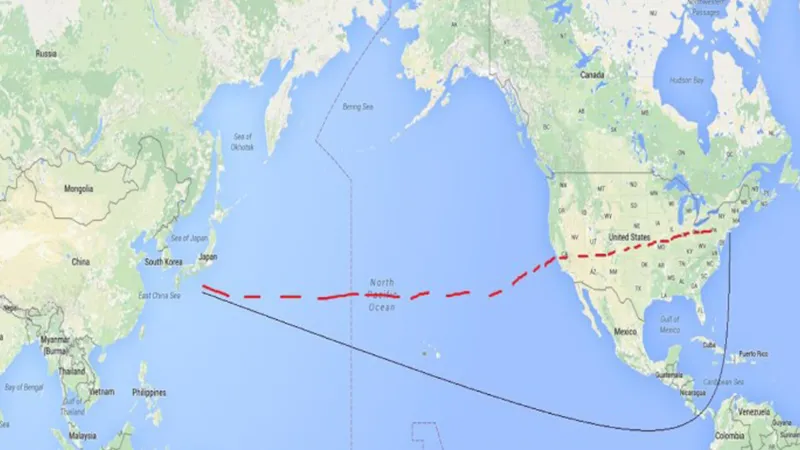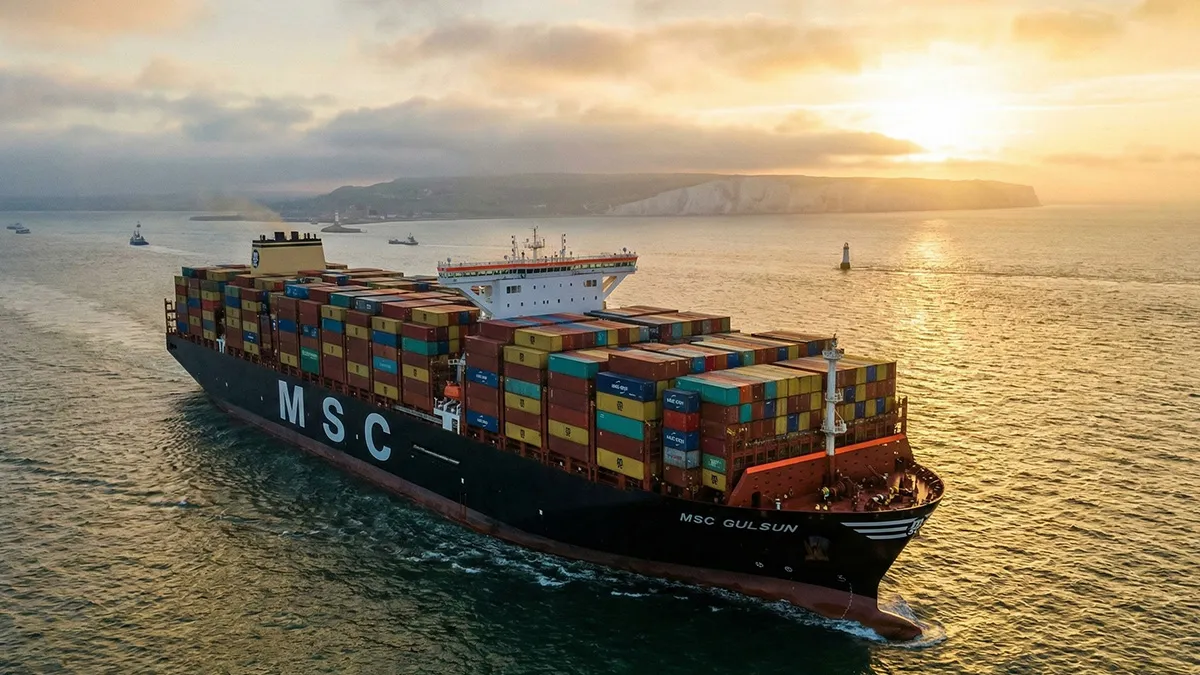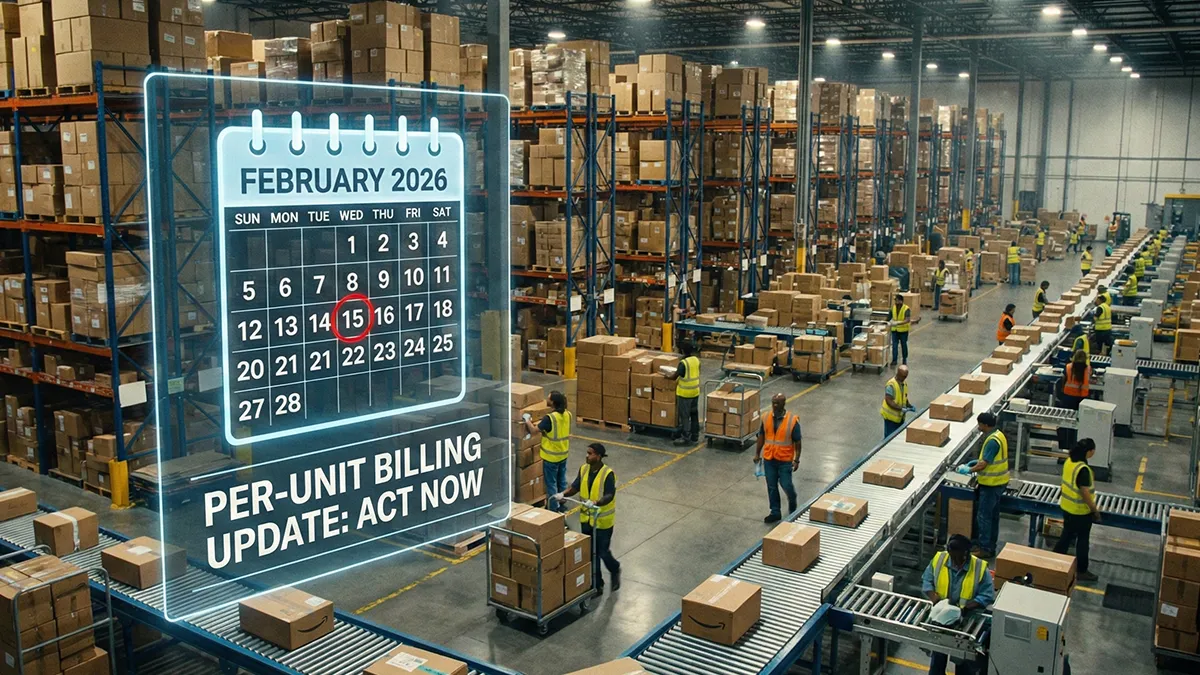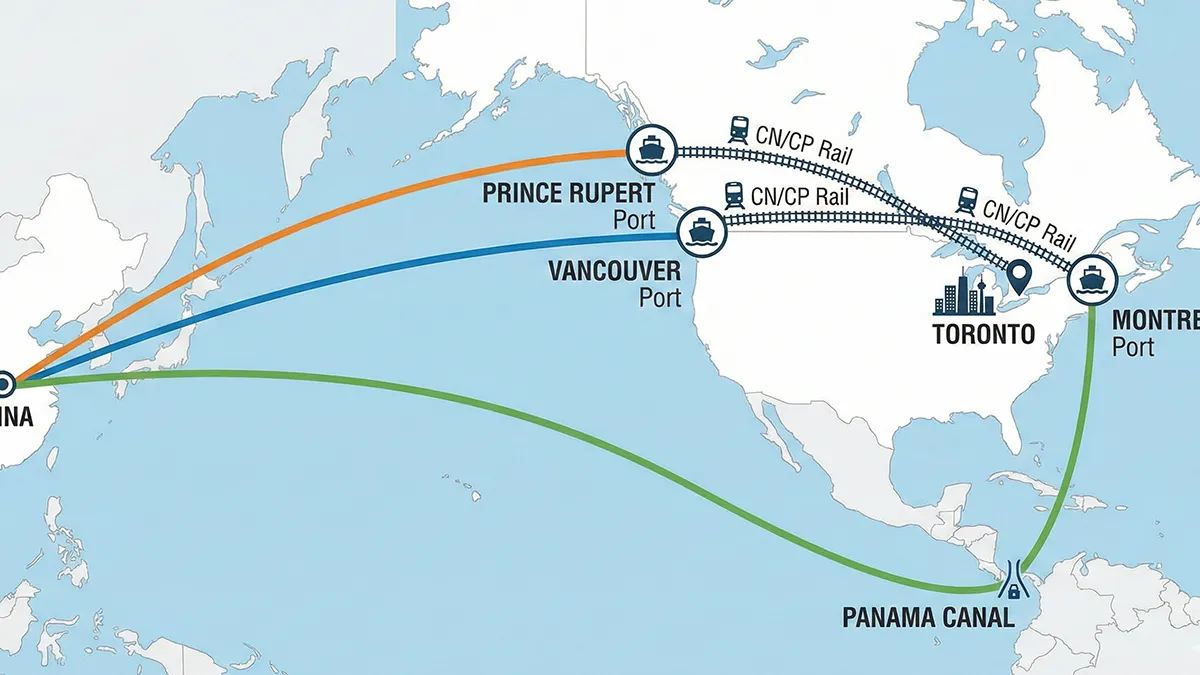Top 7 East Coast Container Ports: A Business Guide
As global trade patterns shift, the U.S. East Coast has become a strategic entryway for importers and Amazon FBA sellers alike.
From the Panama Canal expansion to ongoing West Coast congestion, shippers are increasingly routing containers through East Coast gateways for efficiency, stability, and customs reliability.
At Zbao Logistics, we help importers move cargo from Asia to East Coast ports using DDP shipping, FCL/LCL ocean freight, and complete customs clearance solutions.
Here’s your comprehensive business guide to the seven most important East Coast container ports in the United States.
Why the East Coast Matters for Global Trade

The East Coast now handles nearly half of U.S. containerized imports—a share that’s rising as infrastructure expands and ports modernize.
Advantages for importers and FBA sellers:
-
Shorter inland delivery routes to major markets (NY, ATL, DC, MIA)
-
Reliable customs processing under CBP’s 24-hour ISF rule
-
Multiple DDP entry points for FBA and eCommerce
-
Balanced trade flows—less congestion than LA/LB
Comparison Table: U.S. East Coast Container Ports
| Rank | Port | Location | 2023 Volume (TEUs) | Key Strengths |
|---|---|---|---|---|
| 1 | New York & New Jersey | NY/NJ | 9.5M | Largest; dense Northeast consumer base |
| 2 | Savannah | GA | 5.9M | Fast-growing; excellent rail network |
| 3 | Norfolk (VA) | VA | 3.7M | Deepest harbor; tech-driven operations |
| 4 | Charleston | SC | 2.8M | Deep harbor; strong manufacturing exports |
| 5 | Baltimore | MD | 1.1M | Specialized cargo; Midwest reach |
| 6 | Miami | FL | 1.2M | Latin America gateway; reefer expertise |
| 7 | Philadelphia | PA | 0.76M | Cold chain and perishable imports |
East Coast Ports and FBA Compatibility
| Port | Nearest FBA Regions | Drayage Radius | DDP Suitability |
|---|---|---|---|
| NY/NJ | AVP, EWR, PHL | 100–200 miles | ★★★★★ |
| Savannah | ATL, CLT | 250 miles | ★★★★★ |
| Norfolk | RIC, CLT | 300 miles | ★★★★☆ |
| Charleston | GSP, CLT | 250 miles | ★★★★☆ |
| Baltimore | DC, PHL | 150 miles | ★★★★☆ |
| Miami | MIA, TPA | 80 miles | ★★★★☆ |
| Philadelphia | PHL, AVP | 100 miles | ★★★★☆ |
1. Port of New York and New Jersey – The Powerhouse
Overview:
The busiest container port on the East Coast, handling 9.5 million TEUs annually. Its 50-foot channels and Bayonne Bridge clearance support mega-ships from Asia and Europe.
Strategic Value:
-
Direct access to the Northeast’s 20+ million consumers
-
Strong intermodal connectivity (ExpressRail, I-95, I-78)
-
Frequent vessel calls from China, India, and Europe
Zbao Playbook:
We consolidate DDP shipments through New York for quick customs clearance and next-day trucking to Amazon FBA warehouses in Avenel and Robbinsville, NJ.
Zbao’s brokerage team pre-files ISF/AMS documents to avoid penalties and minimize container dwell time.
2. Port of Savannah – The Southeast Star
Overview:
The Port of Savannah handles 5.9 million TEUs, ranking second on the East Coast. The Garden City Terminal is North America’s largest single container facility.
Strategic Value:
-
47-foot channel; post-Panamax ready
-
Mason Mega Rail connects Savannah to Chicago, Memphis, Dallas
-
Ample warehouse and cross-dock space
Zbao Playbook:
Savannah is our preferred port for FCL/LCL DDP deliveries into the Southeast.
We optimize routes for clients sending bulk or mixed shipments to Atlanta or Charlotte FBA centers.
3. Port of Norfolk (Virginia) – Deepwater Efficiency
Overview:
Virginia’s port handled 3.7M TEUs, featuring 55-foot-deep channels and fully automated terminals—making it the deepest East Coast harbor.
Strategic Value:
-
Dual Class I railroads (CSX, Norfolk Southern)
-
Ideal for Asia–US trade via the Suez Canal
-
Minimal congestion and high operational speed
Zbao Playbook:
For high-volume FCL cargo from Shenzhen or Ningbo, we route via Norfolk to reduce demurrage risks.
DDP shipments cleared here are railed directly to Midwest fulfillment centers.
4. Port of Charleston – Precision and Expansion
Overview:
Charleston processed 2.8M TEUs in 2023 and now boasts a 52-foot harbor, with new capacity from the Hugh K. Leatherman Terminal.
Strategic Value:
-
Balanced export-import flows
-
Excellent for retail and manufacturing logistics
-
Inland Port Greer connects directly to I-85 corridor
Zbao Playbook:
We select Charleston for mixed cargo (FCL + LCL) heading to the Carolinas.
Our DDP workflow integrates CBP clearance, warehouse unpacking, and last-mile trucking to Amazon FCs in Charlotte or Spartanburg.
5. Port of Baltimore – Versatile and Inland-Connected
Overview:
Baltimore’s public and private terminals surpassed 1.1M TEUs, plus 847,000 vehicles (No.1 for autos). Its inland location saves on trucking miles.
Strategic Value:
-
50-foot berth; direct access via Chesapeake Bay
-
Shorter inland haul to Midwest markets
-
Ongoing Howard Street Tunnel upgrade for double-stack trains
Zbao Playbook:
For importers handling machinery, tools, or FBA pallets destined for PA, OH, or DC, Baltimore offers fast customs release and lower trucking costs.
6. Port of Miami – Gateway to the Americas
Overview:
Miami moves 1.2M TEUs yearly and serves as the main North–South hub connecting the U.S. with Latin America. Its 50-foot deep channel supports New Panamax ships.
Strategic Value:
-
Best port for Latin America & Caribbean trades
-
Advanced reefer (cold chain) infrastructure
-
Port tunnel connects directly to I-395/I-95
Zbao Playbook:
For perishable or light consumer goods, we use Miami for DDP import and air re-distribution via Miami International Airport.
7. Port of Philadelphia – Emerging Cold Chain Gateway
Overview:
Philadelphia handled 762,000 TEUs and specializes in perishables and cold chain cargo.
The main channel deepening (45 feet) and upgraded terminals position it for continued growth.
Strategic Value:
-
FTZ and USDA inspection centers on-site
-
Shorter congestion times vs. NY/NJ
-
Excellent for South American fruit, seafood, and beverages
Zbao Playbook:
Philadelphia works best for temperature-controlled shipments and low-congestion customs processing.
We handle DDP clearance here for importers targeting Pennsylvania and New Jersey FBA networks.
How to Choose the Right East Coast Port
When evaluating which East Coast port fits your business:
-
Market Proximity – Northeast vs. Southeast vs. Midwest access
-
Customs & DDP Performance – clearance speed and CBP availability
-
Intermodal Network – rail and highway connections
-
Port Fees & Congestion – total landed cost
-
Cargo Type & Volume – choose based on container size and product nature
Why Importers Choose Zbao Logistics
Zbao Logistics connects Asian manufacturing hubs with U.S. East Coast markets through integrated DDP shipping:
Our Process:
1️⃣ Pickup & consolidation in China (FCL/LCL)
2️⃣ ISF/AMS submission to CBP
3️⃣ Ocean freight via Panama/Suez route
4️⃣ DDP customs clearance at East Coast port
5️⃣ Trucking or rail to Amazon or final warehouse
Learn more:
FAQs
1. Which East Coast port handles the most containers?
The Port of New York and New Jersey is the largest, handling 9.5 million TEUs annually.
2. Which port is best for Amazon FBA shipments?
Savannah and New York/New Jersey are ideal for FBA routes due to quick customs and nearby FCs.
3. How long does ocean freight from China to East Coast take?
Typically 30–40 days, depending on routing and carrier schedules.
4. Can Zbao handle DDP shipments to all East Coast ports?
Yes — we manage DDP, customs clearance, and last-mile delivery across all seven major ports.
Conclusion: Choose Smart. Ship Fast. Grow Confidently.
The East Coast isn’t just an alternative—it’s the new strategic core of U.S. trade.
Selecting the right port can cut delivery times, reduce demurrage costs, and improve your FBA performance.
With Zbao Logistics, you get a partner that combines local customs expertise with global shipping reach, ensuring every container clears smoothly and reaches its destination efficiently.
CTA – Start Shipping with Zbao Logistics
🚢 Simplify your imports with Zbao Logistics.
From China pickup to East Coast delivery, we manage your shipment door-to-door under DDP terms.


